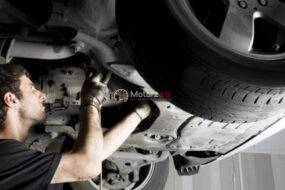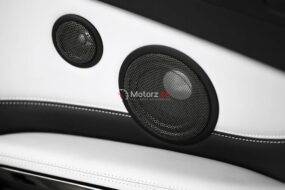Transmission Noise Interpret Unusual Transmission Sounds can be a cause for concern for any vehicle owner. Unusual sounds emanating from your vehicle’s transmission can be an early indicator of potential issues that, if left unaddressed, may lead to more significant problems and costly repairs. In this article, we will delve into the realm of transmission noise, helping you interpret these sounds and understand what they might signify.
Whining or Whirring Sounds:
One of the most common Transmission Noise is a high-pitched whining or whirring sound. This noise is often associated with low transmission fluid levels or inadequate lubrication. Insufficient fluid can lead to increased friction between moving parts, causing these distinctive sounds. Regularly checking and maintaining proper transmission fluid levels can help prevent this issue.
Clunking or Thudding Noises:
If you hear clunking or thudding noises when shifting gears, it could indicate a problem with the transmission’s synchronizers or a worn-out universal joint. Ignoring these sounds may lead to difficulty in shifting gears and potential damage to the Transmission Noise. A timely inspection by a professional mechanic can help diagnose and resolve the issue.
Grinding Sounds:
Grinding noises during gear shifts may suggest a worn-out clutch or synchronise. It is crucial to address this issue promptly, as continued use in this state can lead to more severe damage to the transmission gears. Replacing the clutch or synchronise, if diagnosed early, can save you from a complete transmission overhaul.
Humming or Whistling Noises:
A humming or whistling noise that persists even when the vehicle is in neutral may indicate a problem with the transmission’s pump. The pump is responsible for circulating transmission fluid, and any issues with it can lead to poor fluid flow and increased noise. Regular maintenance and fluid checks can help prevent pump-related problems.
Buzzing Sounds:
Buzzing sounds during acceleration might be a sign of a failing torque converter. The torque converter transfers power from the engine to the transmission and can develop issues over time. Addressing torque converter problems early on can prevent further damage to the transmission and ensure smooth vehicle operation.
Rattling Noises:
Rattling sounds, especially when the vehicle is idling, may be attributed to loose or damaged transmission components. Loose bolts, brackets, or heat shields can create rattling sounds. A thorough inspection by a qualified technician can help identify the source of the rattling and prevent any potential hazards.
Ticking Sounds:
Ticking noises may be a result of low or contaminated transmission fluid. It’s essential to check the fluid quality and level regularly. Additionally, a ticking sound could indicate a problem with the torque converter or a damaged transmission filter. Addressing these issues promptly can prevent further damage to the transmission.
Conclusion:
Understanding and interpreting unusual Transmission Noise is crucial for maintaining the health of your vehicle. Regular inspections, timely fluid changes, and addressing any unusual sounds promptly can save you from costly transmission repairs. If you notice any of the mentioned noises, it’s advisable to consult with a professional mechanic to diagnose the issue accurately and take appropriate corrective measures. Remember, a well-maintained transmission contributes to the overall longevity and performance of your vehicle.





